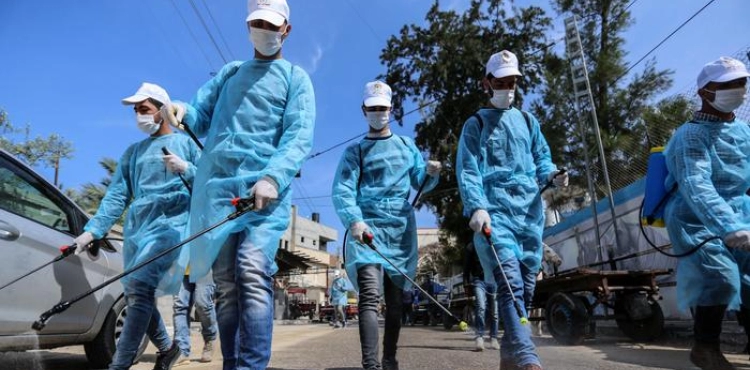The Ministry of Health in Gaza confirmed , this evening, Monday, that the next phase is perhaps the most dangerous since the beginning of the Corona pandemic, with the expansion of the affected areas around the Gaza Strip and the possibility of an increase in the number of injuries among the returnees, which requires adherence to preventive measures without laxity in order to protect society.
Rami Al-Abadla, Director of the Infection Control Department at the Ministry of Health, added during the daily press briefing, that the Ministry of Health and government institutions completed a set of procedures related to receiving returning citizens through the Rafah crossing .
Al-Abadleh explained that the Ministry of Health prepared places and doubled the medical teams at the Rafah crossing to withdraw samples for all returnees and conduct a rapid laboratory examination, whose results appear within 10 minutes, to ensure the initial safety of the returnees.
He pointed out that the rapid laboratory examination will enable medical teams to isolate any case discovered to be infected with the Coronavirus immediately in rooms equipped with the crossing as a preliminary procedure, and another sample will be withdrawn immediately before transferring it to the isolation hospital.
He said, "Health education teams will start their program to educate arrivals about safety and prevention measures during the approved 21-day quarantine period, which can be increased according to health requirements."
Al-Abadla pointed out that the Ministry of Health has provided rooms to quarantine sick cases that need clinical attention and medical interventions within major hospitals, according to safety measures.
He noted that the Ministry of Health and government institutions have a protocol and a guide to procedures in quarantine centers that preserves the privacy of social and sick cases during the approved 21-day quarantine period, which can be increased according to health requirements.
He stressed that the total number of injuries recorded in the Gaza Strip since last March was 81, of which 71 recovered and 9 cases were found in the Isolation Hospital, stressing that the specialized medical teams have a follow-up program for the recovered cases that left the heat centers, as a precaution, and all of them are in a reassuring health condition.
Al-Abadleh indicated that the central laboratory conducted 53 laboratory tests during the past hours, all of which were negative, and no new infection with Corona virus was recorded in the Gaza Strip, pointing out that the Ministry of Health is following up on 261 hosted in quarantine centers, all of whom are in good health.
He stressed that the acceleration of the spread of the epidemic in the countries of the world, which amounted to about 20 million cases, in addition to the high rates of infection around the Gaza Strip, is a harbinger of the besieged sector, which represents the highest population density in the world.
Al-Abadleh explained that the drug deficit in the Gaza Strip crossed the red line after 45% of medicines, 31% of medical consumables, 65% of laboratory and blood bank supplies, and a lack of laboratory testing materials as a result of the Israeli blockade and the halting of pharmaceutical imports from Ramallah with the onset of the pandemic.
He emphasized that the Gaza Strip did not receive its allocations of medicines, laboratory examination materials, intensive care beds and ventilators, among the international aid received by the Palestinian Authority for all our Palestinian people to confront the Corona pandemic, which exceeded $ 100 million.
Al-Abadleh noted that the Israeli blockade and the repeated attacks made the health and pharmaceutical components fragile and ineligible to achieve the first response in the event of an outbreak of the epidemic, and we only have some intensive care beds and ventilators, which can operate in the normal situation at any moment.












